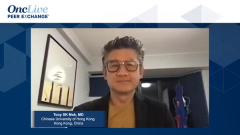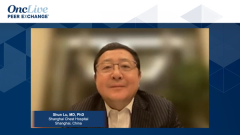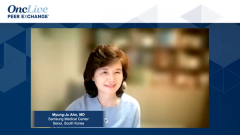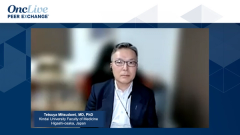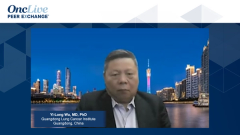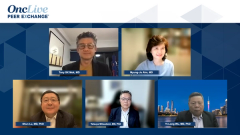
Future Perspectives in EGFR+ NSCLC
Global perspectives on the future management of EGFR+ non–small cell lung cancer given recent advances in the treatment paradigm.
Episodes in this series

Transcript:
Tony S.K. Mok, MD: That is fantastic, my friends. This is a very great discussion on the management advancements in EGFR mutant post lung cancer. Now, I just would like to hear 1 final thought from you. In this year, what is the most important influential study on the EGFR world that is actually changing your practice, changing your flow? Any final thought? Let’s again start with Myung-Ju.
Myung-Ju Ahn, MD: This year, I think that the ADAURA study, the CNS [central nervous system] effect is quite impressive. The ORIENT-31 study had another impact on the patient who failed EGFR TKI [tyrosine kinase inhibitor], but still there is a lot of unmet need for the EGFR mutant non-small cell lung cancer. So we should work so hard to solve the problem.
Tony S.K. Mok, MD: For sure, and Lu Shun?
Shun Lu, MD, PhD: Absolutely, I think that ADAURA is the big advance within this year. Especially as Myung-Ju already mentioned, that for the CNS data, it’s quite encouraging. It’s totally changed the early-stage adjuvant setting. I should say that the ADAURA study is a big progress.
Tony S.K. Mok, MD: And Tetsuya?
Tetsuya Mitsudomi, MD, PhD: If you limit [it to] this year’s data, the questions are a bit difficult. I think that ORIENT-31 is certainly very promising. That partially confirms the data with the [INAUDIBLE] under 50, so the immunotherapy can be another option for treating the patients with EGFR mutations. So that’s very important findings. Also, relative to small cell there are many new agents like our HER3 [human epidermal growth factor receptor 3] ADC [antibody-drug conjugate], amivantamab. Those kind of things, certainly very promising in the future. I very much look forward to seeing the next results that compare with standard therapy.
Yi-Long Wu, MD, PhD: Very interesting. I think the follow up happened last year, but we continued into this year because we have so many new data about the adjuvant EGFR TKI in this year. So I think the most important thing in EGFR TKI now [has] changed our clinical practice from advance disease to the early disease data. This is the whole story before the EGR TKI. Thank you.
Tony S.K. Mok, MD: I agree with all of you. It is not just 1 set of data, but rather the whole concept of personalized approach to personalized therapy. We all work together to make EGFR on the table, to make a first-line therapy. But now we have to further subgroup into many different segments according to genetic changes in terms of both in the initial treatment decision and also in the subsequent resistant management. So I think our whole thing, this is kind of meticulous approach to the patient, I think that is what brings the best [outcomes] to the patient.
On note, I really thank you all. This is most enjoyable experience, talking to you about EGFR mutation. Also would like to thank all the viewers who participated and who joined us for this session. Hopefully, this information can reach you such that it can reach the patient and benefit all of us so that we can have a better survival and better quality of life for all of our lung cancer patients. Thank you so much for attending. Thank you.
Transcript edited for clarity.


